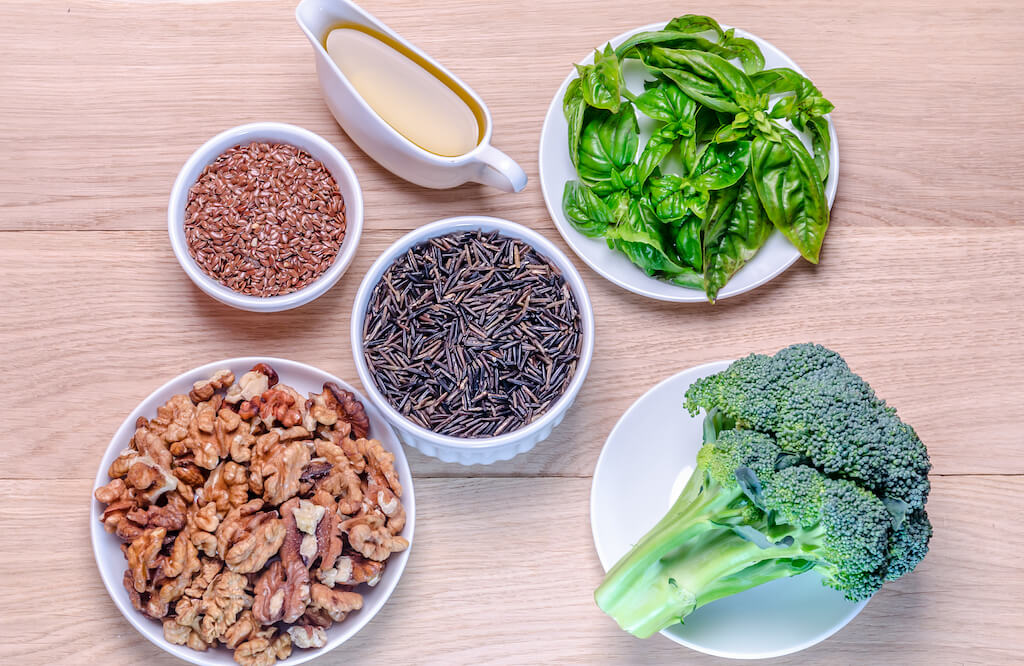

Omega-3 fatty acids are crucial for maintaining health, offering benefits for the heart, brain, and overall wellness. While fish and seafood are common sources, many people seek plant-based alternatives for ethical, health, or environmental reasons. This guide explores the top 10 plant-based sources of omega-3, ensuring you don’t miss out on these vital nutrients on a vegan or vegetarian diet.
Omega-3 fatty acids, including ALA, EPA, and DHA, play a significant role in bodily functions. They contribute to cardiovascular health, reduce inflammation, and support brain development. Despite their importance, the body cannot produce them, making it essential to include them in our diets.
Rich in ALA, chia seeds are a versatile addition to any diet. Sprinkle them on salads, mix into smoothies, or make chia pudding for a nutritious snack.
Ground flaxseeds or flaxseed oil can add a nutty flavor to dishes while boosting your omega-3 intake. They’re perfect for baking or as a salad dressing base.
Packed with protein and omega-3s, hemp seeds are great in granola, yogurts, or as a salad topper.
A handful of walnuts provides a significant amount of ALA. They’re an easy snack or a crunchy addition to meals.
Cooked Brussels sprouts offer a surprising amount of ALA. Roast them with a little olive oil for a delicious side dish.
A vegan source of DHA and EPA, algal oil supplements or fortified foods can help meet your omega-3 needs without fish.
These young soybeans are not only rich in protein but also contain ALA. Enjoy them as a snack or add them to Asian dishes.
Certain types of seaweed and algae are among the few plant sources of EPA and DHA. Incorporate them into your diet through sushi, snacks, or supplements.
Common in Korean cuisine, perilla oil is a flavorful way to add omega-3s to your diet. Use it in dressings for an omega-3 boost.
Kidney beans are a staple in many cuisines and provide a modest amount of ALA. They’re excellent in chili, salads, or as a hearty side dish.
Eating a variety of these foods can help ensure adequate intake of omega-3 fatty acids. For those on a plant-based diet, focusing on ALA-rich foods and considering DHA and EPA supplements from algae can provide the full spectrum of omega-3 benefits.
Omega-3 fatty acids are essential for everyone, and a plant-based diet doesn’t have to mean missing out on these important nutrients. By incorporating a variety of plant-based omega-3 sources into your meals, you can enjoy the health benefits of a balanced diet while adhering to your dietary preferences.
Join the Health Recipe Club for more tips, recipes, and guidance on making healthy eating a joyful and delicious journey. Our 21-day meal plans are designed to cater to various health conditions and dietary preferences, ensuring you enjoy nutritious, balanced meals every day.
Discover the joys of healthy eating with our specialized meal plans at the Health Recipe Club. Sign up today to start your journey towards a healthier you!
Health Recipe Club’s 21-day meal plan page
Other resources that show plant-based omega-3 sources.
For comprehensive information about the health benefits of omega-3 fatty acids, you can visit the National Institutes of Health’s (NIH) Health Professional Fact Sheet on Omega-3 Fatty Acids. This resource provides detailed information on the types of omega-3 fatty acids, their health benefits, recommended intakes, and sources.
Additionally, the NIH’s Consumer-focused page on Omega-3 Fatty Acids offers an overview suitable for non-professionals, detailing what omega-3s are, their importance, dietary sources, and their role in health and disease prevention.
Disclaimer: This content is for informational purposes only and is not intended as medical advice, diagnosis, or treatment. Always seek the advice of your physician or other qualified health provider with any questions you may have regarding a medical condition.

Sign up for our newsletter to receive the latest recipes and health tips, meticulously reviewed to align with the most recent nutritional science.
Copyright © 2024 Health Recipe Club
Our content is intended for informational purposes only and should be used in conjunction with professional medical advice. Recipes and health tips are regularly reviewed to reflect current nutritional understanding, aiming to integrate healthy eating into a joyful lifestyle.